On the order of $43 billion of damages were dealt with Puerto Rico (Planning Board of Puerto Rican Government, 2018), which has not fully recovered and continues to lack federal aid. This cohort challenge is designed to engage students in the development of pathways towards resilient responses for disaster relief efforts. This will be done in the context of Puerto Rico, leveraging several previously initiated efforts targeting underserved communities near the capital city of San Juan. Students will investigate background cultural, political, and social factors that preceded disaster-related events. Lessons learned should be applicable more widely to similar disasters in other regions around the world. Students will be trained in the assessment of the viability of potential social and technological solutions responding to current challenges for the local societies after the disaster. Students will work with local communities, aid organizations, and peer institutions in the identification and implementation of resilient responses. Students will document their assessments providing a prioritized action plan for future development efforts.
Deliverables
Efforts associated with this cohort challenge are supported by parallel, student-led efforts at the University of Illinois at Urbana-Champaign. Thus, potential deliverables developed via this cohort challenge may dovetail with prior ideas identified by students with the effort. Analogously, this effort may spawn future effort. Here we provide a short list of potential areas that may be considered via this cohort challenge—which have been vetted by local stakeholders as potentially viable solutions which they would advocate action. The advisors of this cohort challenge will work collaboratively with you to select a reasonable challenge that will leverage skills offered by all members of the team. The overarching conflict for this cohort challenge, and indeed much of the effort surrounding all such disaster relief projects, will be in balancing short-term outcomes with long-term efforts towards the establishment of resilient infrastructures that are in fact better than those that preceded storm events (Figure 1). So, for example, your cohort challenge might consider any of the following, or a related product of your own devising, with the approval of your advisors.
- Identification of design considerations and recommendations for resilient and distributed infrastructures In island communities, like Puerto Rico, food, energy, and water are the first to be lost, and only after extensive, long-term efforts are such infrastructures improved. To combat the lack of resiliency of today’s infrastructure, there is a clamor for increased use of distributed systems for primary production of drinking water (e.g. extracting groundwater and rainwater harvesting), development and management of community gardens, off-grid electricity production, or stormwater management. What are the design considerations and recommendations that would govern the development of such infrastructures? How would we certify that these infrastructures would be more resilient than pre-storm and extant systems?
- Community Development Block Grants and Emergency Management Plans Pathways for accessing Federal funding from the Federal Emergency Management Agency (FEMA), Housing and Urban Development (HUD), or many federal agencies often requires preparation and submission of key plans. Notably among these are the “Economic Development and Recovery Plans” and the “Disaster Recovery Action Plan,” both key components for Community Development Block Grants and Emergency Management Plans. Such plans are organized expected to be prepared multi-jurisdictionally, and local communities must inject themselves into this process to ensure their key needs are met. This would require establishment of a prioritized agenda for each jurisdiction. Without direct support for planning and capacity-building, these communities seem unlikely to benefit much or at all from top-down initiatives supported by FEMA and HUD. How can a prioritized agenda be prepared that would be reflective of stakeholder short-term and long-term needs? How can local communities inject their ideas into multi-jurisdictional plans for development?
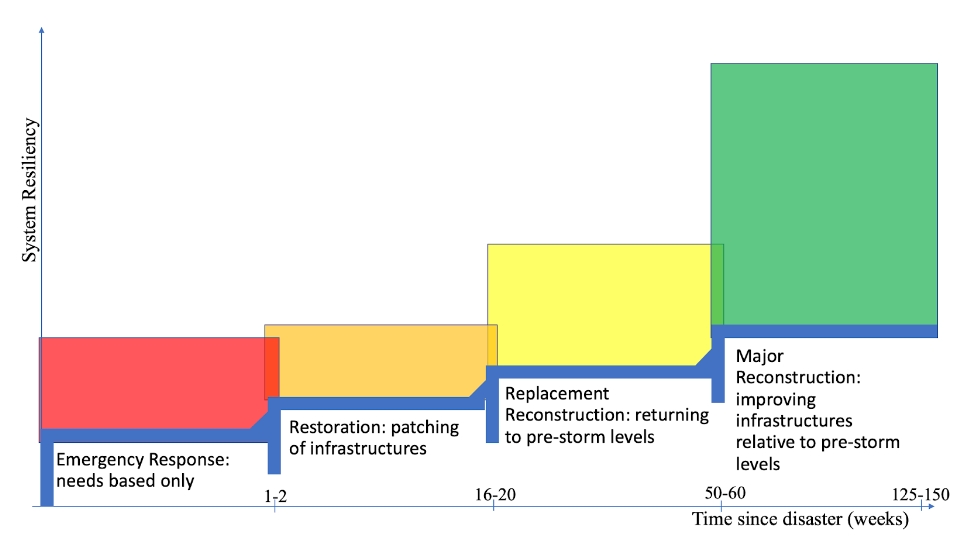
Figure 1. Model timeline for recovery from disaster with four overlapping phases of recovery-related activities (emergency, restoration, replacement reconstruction, and major reconstruction), adapted from (Kates, 1977; Olshansky & Johnson, 2016) The length of these development stages cause major challenges for actors seeking to provide value to communities.
Advisors
Luis F. Rodríguez
Anna-Maria Marshall
Graduate Mentors (2020-21)
Ayorinde Ogunyiola, South Dakota State University
Samuel Reed, University of Minnesota
Michael Stablein, University of Illinois Urbana-Champaign
Jessica Talbot, Iowa State University
Riveraine Walter, University of Idaho
Deliverables: 2020-21 Cohort
Caras con Causa asked the cohort to help them find published literature related to two of its projects - the Community Laboratory (LabCom) and Urban Roots. This literature review will be used in outreach and funding efforts.
- Quick Facts Sheet
- Urban Roots - Literature Summary
- LabCom - Literature Summary
- Database of literature in Excel and a Zotero library. The Excel file includes a list of grant programs relevant to Caras’ programs.
The cohort has started the process of writing a journal article on their experience.
Deliverables: 2019-20 Cohort
This cohort focused on producing materials that would help Caras con Causa in their outreach efforts and to demonstrate their impact to funders.
- Storymap - Compounding Disasters in Puerto Rico:Pathways for Virtual Transdisciplinary Collaboration to Enhance Community Resilience
- Interactive map and guide (Bookdown) for creating community based maps - Guide to Creating Interactive Maps in R
The cohort has authored an article that is under review by the journal Global Environmental Change.
Student Learning Outcomes
- Students will learn, gain and demonstrate their understanding of globally relevant issues where problem-solving can contribute towards tangible, context-sensitive, and resilient solutions.
- Students will demonstrate their understanding of the political, cultural, social issues preceding recent events in Puerto Rico, and how they may affect potential solutions.
- Students will document their observations of the current state of Puerto Rico, its citizens, and its infrastructure, identifying current challenges for recovery.
- Students will assess and prioritize the viability of potential social and technological solutions responding to current challenges in the aftermath of Hurricane Maria.
- Students will draft action plans for communities and students groups seeking to provide service towards collaborating communities while in the country.
- Students will produce a product demonstrating their contribution towards resilient short and long term solutions in the wake of Hurricane Maria.
Funding
This challenge is one of several challenges offered during the 2019/2020 academic year through an NSF Funded project, “The INFEWS-ER: A Virtual Resource Center Enabling Graduate Innovations at the Nexus of Food, Energy, and Water Systems”. This project is led by Luis Rodriguez, a faculty member at the University of Illinois, and a partnership of faculty from several other land grant universities. Members of the cohort who complete the challenge will receive travel support to present their work at the Annual INFEWS-ER Symposium to occur in March 2018. Students who continue to engage with the INFEWS-ER may qualify via an application for support at FEW-ture Faculty fellows who will provide learning modules to be added to the INFEWS-ER based on their experiences within this Cohort Challenge.
The INFEWS-ER project addresses the need for today’s academic and business professionals to address wicked challenges such as those at the nexus of food, energy, and water. Successful professionals will need both the technical and power skills (interdisciplinary skills) critical to high performing and diverse teams needed for tackling these wicked challenges. This cohort challenge will develop young scientists capable of applying “team science” for engaging multiple disciplines in addressing a challenge that considers historical and current conditions from various perspectives. The cohort challenge will build analytical skills and critical thinking techniques that go beyond this specific challenge.
Cohort Meetings
The cohort challenge will begin mid-October and conclude by May. A weekly 2-h meeting schedule will be agreed upon by the cohort participants and advisors, recognizing the differences in semesters, holidays and other class commitments for the various universities represented by team members.
We are designing this to be roughly equivalent to a 3 credit hour course for those on a semester system (4.5 credit hours for those on a trimester system). We encourage students to work with their advisor to build this into the student’s academic plans as a 3-credit hour special problems course. A full course syllabus and description is available for documentation requirements.
Course material will be delivered through synchronous and asynchronous activities. Web meetings will provide synchronous learning. Near the conclusion of the cohort challenge, the cohort will assemble for a two to a three-day symposium for additional learning opportunities and to finalize the proposed products resulting from this effort. Symposium travel expenses will be paid by the NSF project funding.
Tentative Schedule
Week 1 Orientation and High-Performance Teaming
Week 2 Past Projects
Week 3 Stakeholder Web conferences
Week 4 Establishing and Maintaining Accountability
Week 5 Disasters, Their Many Types, Their Prevalence, and Modes of Recovery
Week 6 Stakeholder Web conferences
Week 7 Problem Solving in Context
Week 8 Understanding Stakeholders
Week 9 Stakeholder Web conferences
Week 10 Communicating Science and Stakeholder Engagement
Week 11 Systems Thinking
Week 12 Stakeholder Web conferences
Week 13 Student Led Discussions and Systems Thinking
Week 14 Resilient Design
Week 15 Stakeholder Web conferences
Week 16 INFEWS-ER Symposium Presentations
Week 17 Student Led Discussions on Project Closure
Emine Fidan, North Carolina State UniversityI am a current Ph.D. student in Biological and Agricultural Engineering at NC State University and received my B.S. in Biosystems Engineering in 2018 from the University of Tennessee. My focus is on data analytics and modeling applied to the environment and agriculture. I am currently applying my skills in programming, statistics, machine learning, biological systems, and geospatial analytics to model flood extent after Hurricane Florence impacted North Carolina in September of 2018. My project goal is to understand the flood hydrology within the North Carolina coastal plain and the predictors of flooding within the area. I also enjoy spending my time outdoors and volunteer at clean-up events frequently. |
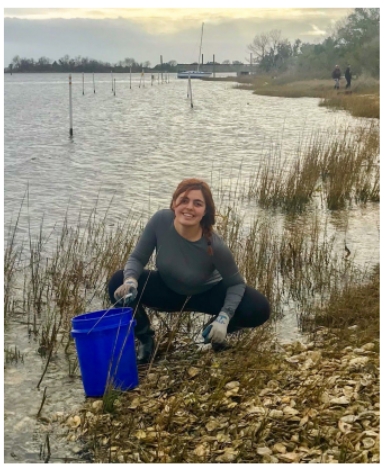 |
Jesann Gonzalez Cruz, University of IllinoisJesann is a first year doctoral student in the Natural Resources and Environmental Sciences Department at the University of Illinois Urbana-Champaign. Her research looks at the language and practices of invasive biology as related to the Coqui, a frog endemic to Puerto Rico but invasive to Hawaii, and the associated effects on conservation outcomes across both archipelagos. She has an M.A. and a B.A. in Anthropology from the University of Illinois, and the University of Central Florida respectively. Jesann joined the DRR cohort to gain experience in interdisciplinary work and learn more about capacity-building efforts in Puerto Rico. |
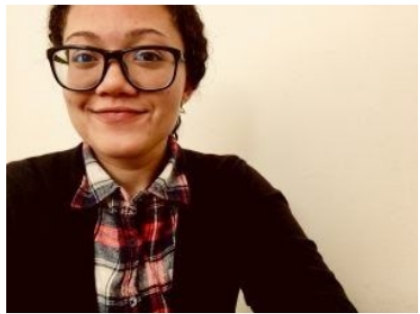 |
Ayorinde Ogunyiola, South Dakota State UniversityAyorinde is a Ph.D. candidate in applied sociology. His current research interest focuses on climate-smart agriculture (CSA) and development, where he analyzes issues of justice and power. The overall objective of his study is to understand how key organizations such as the World Bank and the Food and Agriculture Organization of the United Nations, prioritize CSA agenda. Ayorinde also researches the ethics and governance of Artificial intelligence. |
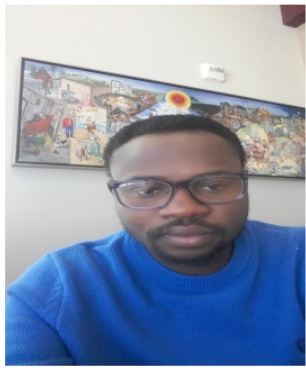 |
Samuel Reed, University of MinnesotaI am a 3rd year Ph.D. student in Natural Resources Science and Management at the University of Minnesota. I study how combinations of fire, wind storms, deer, and invasive earthworms influence temperate forest recovery and resilience over time. Although I have a deep love for the forest, I am most interested in how systems change and adapt in response to various combinations of disturbance. Following graduate school, my hope is to merge my understanding of system resilience and policy. |
 |
Michael Stablein, University of IllinoisAs a graduate student in the Agricultural and Biological Engineering Department at UIUC, my Ph.D. research and projects have heavily concentrated on algal bioremediation of thermochemical residues for nutrient and value recovery and international projects. A number of my courses and extracurricular projects have focused on analyzing rural communities and economies to develop new technologies and products or engineering solutions to resolve waste management and water treatment problems. During my Ph.D. studies, I have worked specifically with Latin American communities and grant writing to organize projects that can make a significant impact on people’s lives on a larger scale. In Puerto Rico, we have learned about the needs for community development projects, including engineering, education, community engagement, etc., and this ideally aligns with my future career aspirations to work on international development as an academic and entrepreneur. |
 |
Jessica Talbot, Iowa State UniversityI am a second year PhD student in Civil Engineering with an emphasis in construction, my dissertation research is focused on the reconstruction of housing in Puerto Rico after Hurricane Maria, using the lenses of social capital, socioeconomic vulnerability, and institutional barriers, using both quantitative and qualitative methods. |
|
Riveraine Walters, University of IdahoI am an interdisciplinary Ph.D. candidate in the Water Resources Program at the University of Idaho with strong backgrounds in both social science and engineering. My dissertation research is based on 1.5 years of fieldwork in Chile related to adaptation for hydrosocial challenges through a deeper understanding of the interconnectedness among social and environmental conditions. I hold master’s degrees in environmental policy, environmental management, and waste management. I was also previously a Ph.D. student in human geography for two years in Canada before transferring to my current program. Prior to beginning my doctoral work, I served as a Peace Corps volunteer in Mexico and worked professionally as an engineer, project manager, and environmental consultant. |
Gina Belair, University of MontanaAlthough my background is in math and physical science, I have developed an interest in social science and policy aimed at increasing equity for vulnerable populations. During past internships I studied computer modeled tsunami propagation, installed seismometers used to image the subsurface of Mount St. Helens, and studied the vulnerability of the water system in Mizoram, India. These opportunities, as well as my experience in the BRIDGES program, has deepened my interest in equitable hazard and risk mitigation. My current master’s research focuses on the transferability of landslide hazard assessments to unstudied regions. |
|
Annie Brunton, University of Illinois Urbana-ChampaignI am a first semester master’s student in Agricultural and Biological Engineering with a focus on soil and water resources. My research focuses on denitrifying bioreactors, an agricultural practice used to reduce nitrate from agricultural drainage water to improve water quality downstream. I have a primary background in water resources engineering with secondary background in Spanish, math, mechanical engineering, and agriculture. I have an interest in the intersection between global issues and engineering applications. |
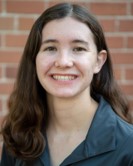 |
Melinda Cooper, University of North Carolina WilmingtonI am a part time Masters in Social Work student in a program that specializes in clinical social work (anticipated graduation date of May 2021). We are learning various theories of social work, including strengths perspective, empowerment, various theories of how clients are are affected (including systems theory and other theories). We are also learning about various therapies, including solution focused therapy, solution oriented therapy, cognitive behavioral therapy, etc.. My field placement is with the American Red Cross. My position there is a disaster services recovery caseworker, where I assist clients who have experienced various levels of disaster. I help them by listening to them and their situations, needs, frustrations, and work to provide them with resources and encourage them in their recovery. |
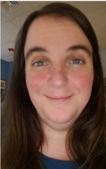 |
Archana Dahal, University of UtahI am a first year master’s student in the civil and environmental engineering program at the University of Utah. I’m working towards building expertise in water and wastewater treatment design. I’m interested in applying engineering principles for understanding and solving water related global issues. |
|
Victor Funes, University of Illinois at Urbana-ChampaignI am a third year PhD Student in Applied and Agricultural Economics, my fields are Development and Environmental Economics. My fields are Development Economics, Program Evaluation and Statistical Methods. The first chapter of my PhD Dissertation is a paper about the impact of flooding on household resilience in Northeastern India. |
|
Rebecca Katz, Penn StateI am obtaining a chemistry PhD in materials for clean energy generation. |
|
Philip Margarit, University of Minnesota-Twin CitiesMy course of study is water resources science and my areas of expertise are in hydrogeology/hydrology and water quality. I will be learning groundwater modeling and groundwater transport modeling through my research over the next few years. |
|
Daniela Markazi, University of Illinois at Urbana-ChampaignI am a second-year informatics PhD student at the Illinois Informatics Institute at the University of Illinois, Urbana-Champaign (UIUC). My research focuses on how technology is designed to contribute to, enhance, and influence social change and development. I have dual bachelor’s degrees in agricultural and biological engineering with a minor in natural resource conservation, so I have both engineering experience as well as environmental science experience. I also have a background in robotics and computer science. I have been a part of the UIUC Puerto Rico Disaster Relief program since its inception in 2018. |
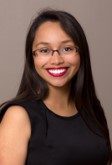 |
Glorynel Ojeda-Matos, Arizona State UniversityI am a Ph.D. student at the School of Sustainability and Research Assistant for the INFEWS project in Argentina and Uruguay. My current research focuses on Institutional Analysis, Socio-Hydrological Modeling, and Knowledge to Action Analysis in FEW systems. I have done studies on energy and water issues in Puerto Rico. As part of my coursework, I took graduate courses on Disasters as Opportunities for Sustainability, and Social-ecological-technical systems. I have a master’s degree in urban-territorial planning, a second master’s degree in environmental sciences from the University of Puerto Rico, and a bachelor’s degree in civil engineering from the Polytechnic University of Puerto Rico. |
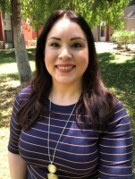 |
Farzana Shirin, University of Illinois Urbana ChampaignI am a third year PhD student in Applied and Agricultural Economics at the University of Illinois, Urbana-Champaign and my primary field of study is Development Economics. I am currently working on the impact of rainfall shocks(natural exogenous shocks) on household food security in Bangladesh. I come from a country that is getting increasingly vulnerable to climate changes and this has driven my interest in understanding research design and policies targeting populations that are vulnerable to climate and economic shocks. |
 |
Emma Stonum, TexasTechI am currently pursuing my Masters in Agricultural Communications at Texas Tech University and hoping to continue my education by getting my Ph.D. I have always had an interest in risk crisis management along with meeting and working with new people. My current thesis is over crisis communication on a college campus and what form of communication is best when disseminating information for a crisis. |
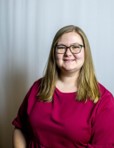 |
Sinta Sulistyo, Arizona State UniversityI am a PhD student in the School of Sustainability at ASU. My educational background is industrial engineering. My interest is in disaster management and resilience as my home-country, Indonesia, is a prone-to-disaster country. I was one of the indirect victims of the earthquake and volcano eruption in Yogyakarta, Indonesia. So far, I’ve been conducting research by implementing operations research in the healthcare and humanitarian realm since those two areas are the important factors during disaster recovery. However, for my PhD, I am planning to focus on disaster resilience. |
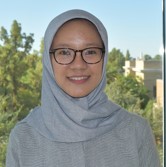 |

